Russian Film Week | Here, it is the "Northland Spring" of world movies.
Special feature of 1905 film network On September 6th, the "Russian Film Week", under the guidance of the Ministry of Culture of the Russian Federation, the Russian Embassy in China, the Propaganda Department of Hunan Provincial Party Committee and Hunan Film Bureau, and co-sponsored by China Film Group Corporation, Xiaoxiang Film Group Co., Ltd. and Russian Central Partnership Film Company, kicked off in Beijing, China, and officially launched a four-day Russian film screening activity.
AARON Li, Special Representative of China Government for Eurasian Affairs, andre Denisov, Russian Ambassador to China, Bai Yimin, Deputy Director of National Film, Mao Yu, General Manager of China Film Group Corporation and other leaders, filmmakers and other guests attended the opening ceremony of Russian Film Week.
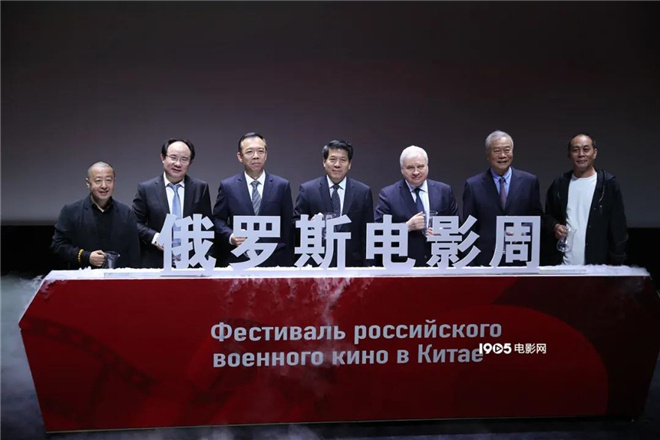
Actor Zhang Guangbei is the director and producer of the Russian TV series of the same name. He remembers seeing the novelist Vasilyev in Moscow sixteen years ago. He said, "The experience of filmmakers from the two countries fighting side by side has made me unforgettable. As a film and television worker, it is very meaningful to contribute to the friendship between the Chinese and Russian peoples."
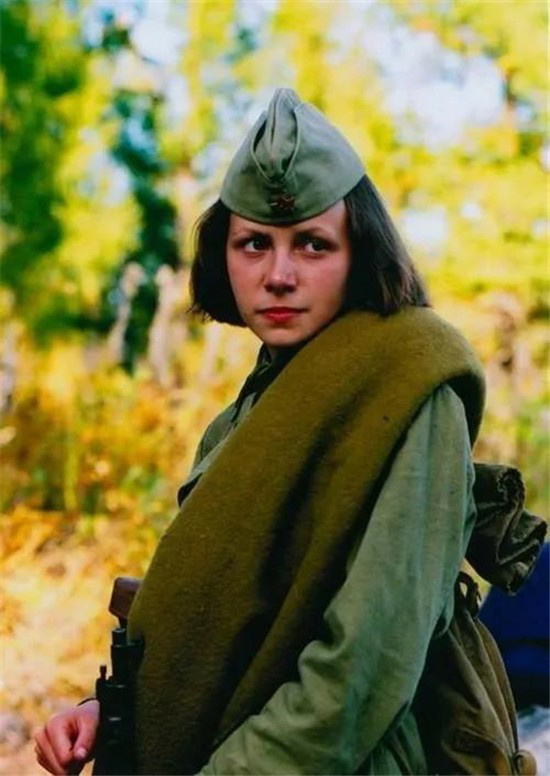 Screenshot of the TV series "The Dawn is Quiet here"
Screenshot of the TV series "The Dawn is Quiet here"
Director Jia Zhangke said that he has always been a fan of Russian military movies, and he is also looking forward to challenging the shooting of war themes one day. The younger generation of Russian filmmakers have the creative characteristics of "poetry and reality". The Chinese and Russian filmmakers have the same soul, and there will be more cooperation in the film field in the future.
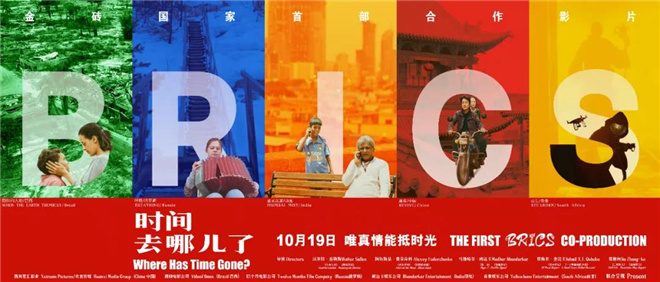
In fact, as early as 2017, Jia Zhangke co-directed the first cooperative film of BRICS countries with Russian directors. Produced by Jia Zhangke, the film brought together five film directors from China, Russian, Indian, Brazil and South Africa to make a short film with the theme of "Where has the time gone?", telling their different understandings of time and emotion from their own unique perspective.
This "Russian Film Week" will be shown in Beijing and Changsha from September 6 to 10 and September 8 to 12, respectively. Six representative Russian anti-fascist works, such as The Last Frontline, Life and Death Ball Match, Highland 89 and Zoya, will show Russia’s humanistic charm and national spirit in the light and shadow world, and also bring spring to the audience in Beijing and Changsha in autumn.

spring in the north
Among the six films, T34 was shown in China on December 11th, 2020, which tells the story of heroic Soviet soldiers successfully escaping from the Germans. The film won the "Special Medal of the Iron Man Jury" and the "Best Editing Award" in the 5th International Action Film Week.
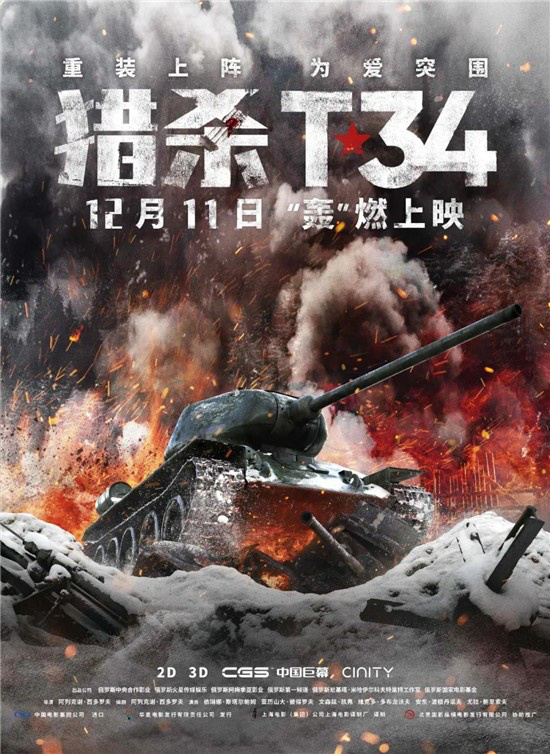
Border Fog was released in China on March 12th this year. The film tells the story that Michael used to think that his ancestors were traitors who surrendered and committed suicide in the Soviet-German battlefield, but by chance, he found the door of time. After crossing back, he found that his ancestors were all heroic soldiers … …

The Last Frontline tells the story of the heroic resistance of the students of podol Sk Infantry and Artillery School on the outskirts of Moscow in October 1941.
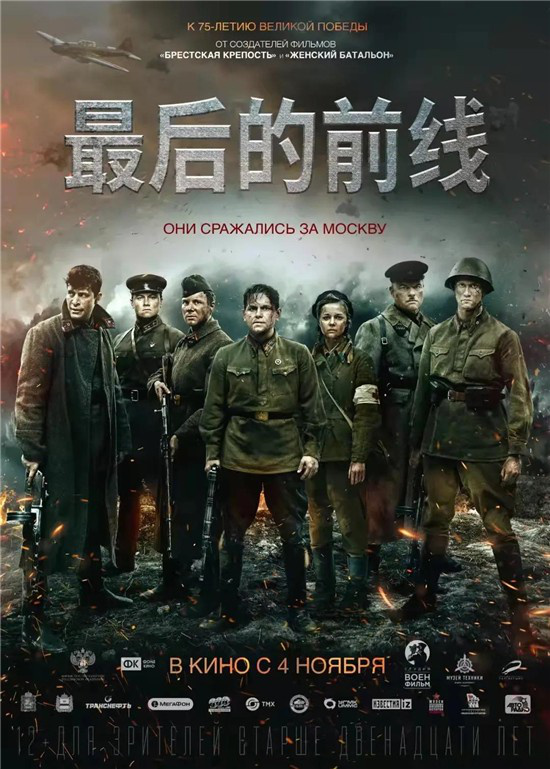
"Highland 89" heroically reproduces the tragic bloody battle in the Caucasus Plain, which is more epic than the classic sniper’s work, and won the Russian Golden Eagle Award and the Russian Nika International Film Festival Award in one fell swoop.
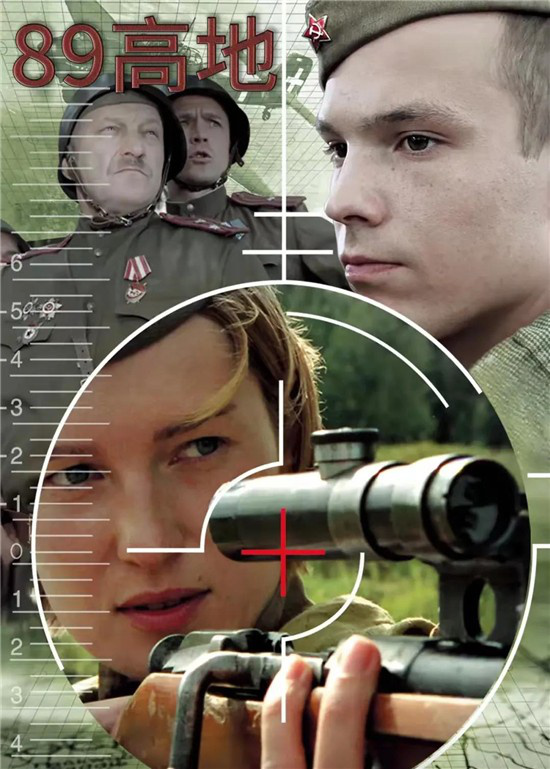
The Match of Life and Death is based on historical events: In 1942, Kiev in the Ukrainian Republic of the Soviet Union fell into the hands of German troops, and the new Kiev football team was going to play a game with the German Nazi team under fascist rule … … The film and have the same effect, and both show the cruelty of war and fascist atrocities with the help of football themes.
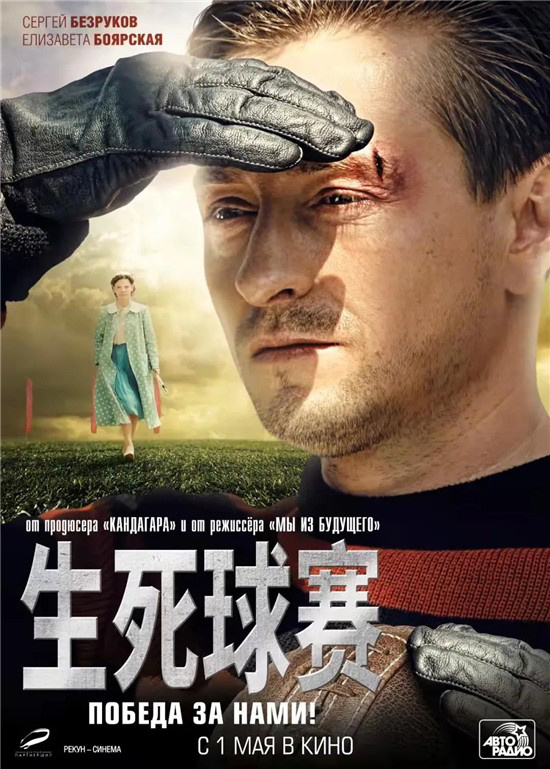
"Zoya" is based on the patriotic heroine of the Soviet Union: in the autumn of 1941, Zoya, a female student, voluntarily participated in a sabotage activity, but was unfortunately captured, but never gave in. She was also the first woman to win the title of "Soviet hero", and was made into a movie of the same name as early as 1945.

It is worth mentioning that these Russian films were all released after 2000, and they were all set in the Great Patriotic War of the Soviet Union, but they showed different colors from the previous films of the same theme in Russia, a big country producing war films.
In the traditional hymn of heroism, The Fog on the Border uses the art of crossing to make the dude living in modern times cross the most critical moment of the country, and realize the hardships of his predecessors and the beauty of the present from his feelings for home and country and where will you go, so as to reflect on various current thoughts.
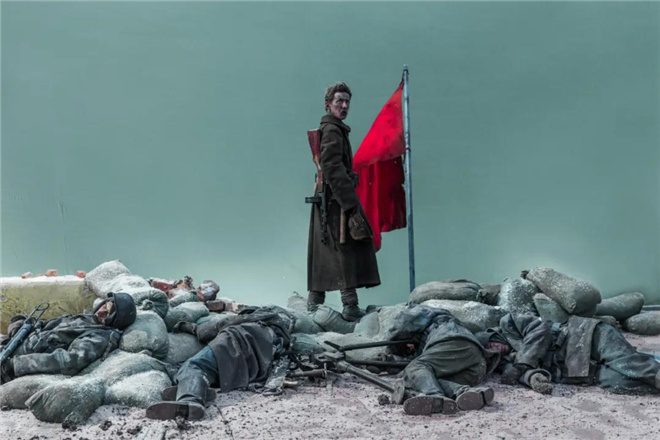
"The Last Frontline" added the elements of campus youth to the traditional war films (and took the spy war as an excessive rhythm). When the classical romantic love encountered the most cruel war in human history, it had already predicted the flower festival of cruel youth and the demise of romance. More than 2,500 of the 3,500 cadets stayed on the battlefield forever, and the soldiers who returned home were no longer teenagers. Only in the smoke and tears could they meet with the smile of "Dawari" again … …
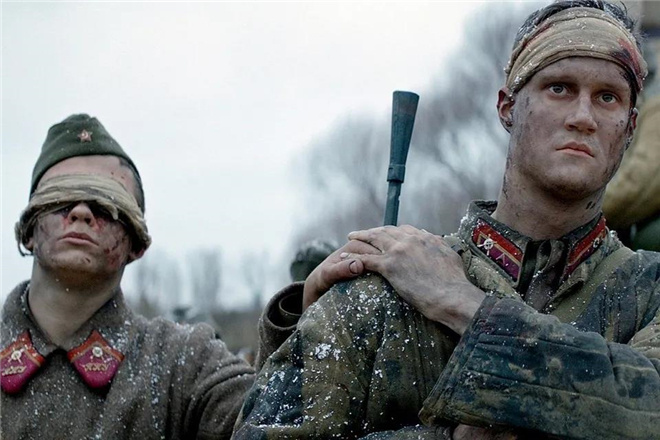
In The Match of Life and Death, the director voluntarily gave up the grand narrative, focused on the experience of a little person (Soviet soccer goalkeeper Nikolai Treacy), and deeply touched on the essence of war and human nature through the ultimate choice of winning the tragic and fearless game or losing at the Nazi gun.
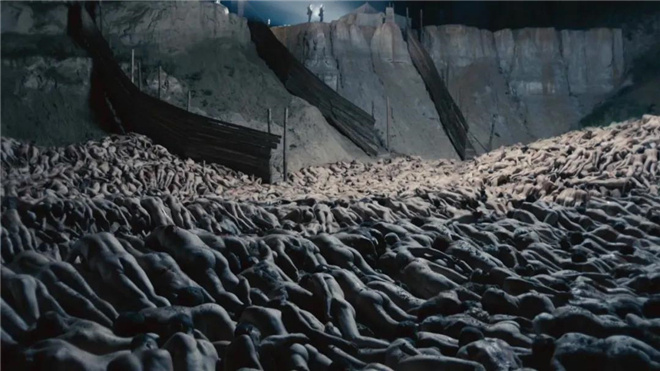 The Nazi mass grave scene in "Life and Death Match" is shocking.
The Nazi mass grave scene in "Life and Death Match" is shocking.
The tanks in T34 are all real T-34 and Leopard tanks in World War II. All actors trained to open tanks for 3 months and completed all actions, and invited military advisers. "89 Highland" invested 400 million yuan and used 5,000 soldiers from two divisions, 300 tanks and 200 planes to take part in the filming, which can’t help but remind people of one of the films with the most extras in film history — — Written and directed in 1966.
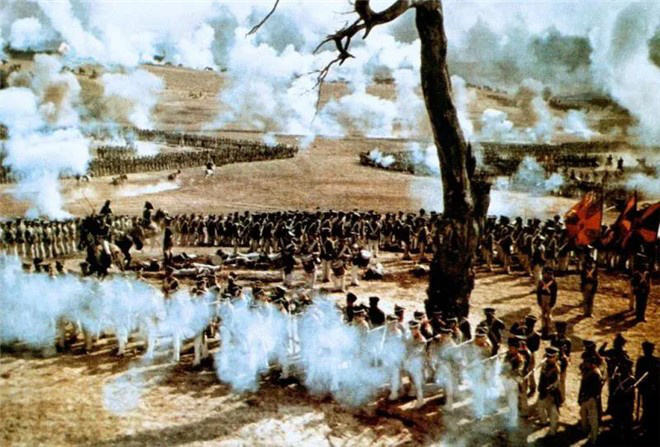 "War and Peace" is a war scene like an oil painting.
"War and Peace" is a war scene like an oil painting.
It can be seen that after the new century, Russian films have returned to tradition in art, to the public in value, to classics in subject matter, and integrated into the trend of film genre combination on the basis of classic narration, and practiced their own national film language with the help of the development of modern film industry.
Red romance
Speaking of film language, Soviet films have made two great contributions to world films: montage and poetic films.
In 1923, movie master published an article "Attraction Montage" in the magazine "Left-wing Literary Front", which initiated the film montage theory and the Soviet montage school. His masterpiece tells the historical story of the uprising of the warship potemkin of Odessa Navy. The "odessa steps" in the film has also become the most classic montage fragment in film history, and confirmed his famous saying with 155 shots in 7 minutes, "The juxtaposition of two montage shots is not the sum of two numbers, but the product of two numbers". Therefore, the film stood at the top of the pyramid in the golden age of Soviet movies.
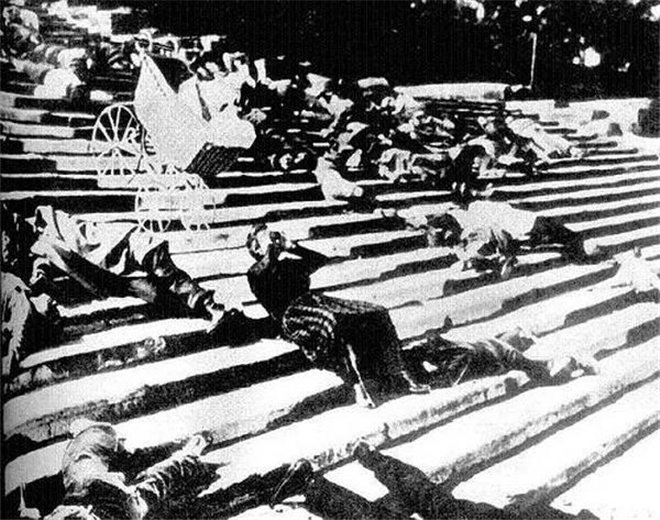 The famous stroller in odessa steps.
The famous stroller in odessa steps.
In 1957, the director of the Soviet Union was considered as "a movie satellite launched by the Russians", which broke through the rigid framework of Soviet World War II films, skillfully formed the double metaphor of "geese flying south" through subtle emotional depiction, and led the film to a poetic film road.
The long and rotating shots with poetic beauty perfectly overlap the artistic conception of the picture with the connotation of the story, and show the sufferings of Soviet youth in the anti-fascist war with the life of a woman who has never been to the battlefield.
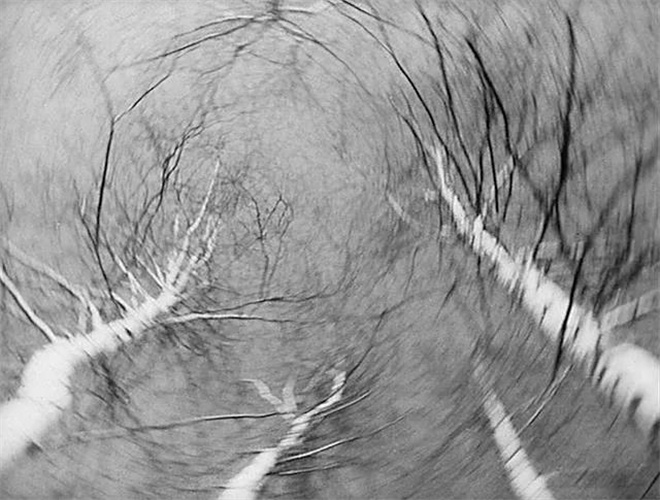 In "Flying South in Wild Goose", before he died, the man looked at the rapidly rotating birch treetops, and he imagined that he was married to the woman, which became a classic lens in film history.
In "Flying South in Wild Goose", before he died, the man looked at the rapidly rotating birch treetops, and he imagined that he was married to the woman, which became a classic lens in film history.
In addition to these two world-changing films, Lenin in 1918 in the 1920s, Zoya during the Great Patriotic War, and Silent Dawn Here in the 1960s and 1970s after the war are all world-famous films, not to mention War and Peace, which were adapted from domestic classics, which made Soviet films bear extremely rich literary nourishment.
After the founding of New China, the film mode of the Soviet Union began to be used for reference by filmmakers in China, and once became a model for China’s film creation. At that time, China established a complete supporting film management system from management, production and operation, and Beijing Film Studio, Shanghai Film Studio and Bayi Film Studio were successively established, which became the main position of film setting in the early days of New China together with Northeast Film Studio, and gradually stepped out of the road of new China film with national style and modern characteristics.
In mid-2020, the director also recreated Ivan’s running on the water in Ivan’s Childhood on the ice of Lake Baikal, and showed his parents’ youth, love and the era full of faith influenced by "Big Brother of the Soviet Union" with the song "Red Berry Blossoms" sung by the "embarrassed mother" at the Red Star Theatre.

In recent years, both China and Russia are adopting the cultural strategies of "going out" and "bringing in", constantly strengthening the support for domestic films, and winning many awards in major international film festivals, thus embarking on the road of great-country films with their own national cultural characteristics and characteristics of the times. At the same time, China and Russia have also carried out film exchanges and cooperation in many fields by holding film festivals with each other regularly, co-shooting films, introducing and broadcasting excellent film and television works from both sides, which has injected new vitality into deepening the comprehensive strategic cooperative partnership between China and Russia in the new era.
As Bai Yimin, deputy director of the State Film Bureau, said at the opening ceremony of "Russian Film Week", "this" Russian Film Week "will further promote pragmatic cooperation in the film field between China and Russia, promote the common prosperity and development of the film industry between China and Russia, and write a new chapter for enhancing the exchange and mutual learning of Chinese and Russian civilizations and the traditional friendship between the people."